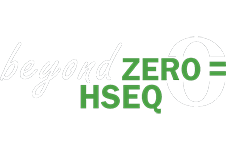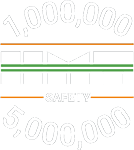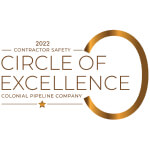Get Ready for Texas Senate Bill 900: Frequently Asked Questions
By Allie Alderson, Director of Sustainability and Marketing
April 23, 2023
Texas Senate Bill 900 – a much-needed regulatory response to the 2019 Deer Park fire and to tank safety in general – is moving forward. The bill, which I described last month, has the potential to impact an estimated 36,000 regulated aboveground storage vessels, and the businesses of their owner-operators.
The public comment period for the bill is now underway. That means it’s time to step forward and help contribute to the final version. This is the culmination of a long process – SB 900 is anticipated to go into effect in September after three years in the making. But it’s a critical moment in the development of the bill, and in your business.
Public hearings are already underway – they’ve taken place in Fort Worth (March 23), Beaumont (March 28) and Houston (March 29), Corpus Christi (April 3), Midland (April 6), and Austin (April 10).
If you haven’t already, now is the time to get informed on how the rule will impact your facility’s operations and to make sure your voice is heard.
What’s at issue, and what’s at stake? Heading into 2023, at the National Institute for Storage Tank Management (NISTM) Conference, we held a panel discussion with the Texas Commission on Environmental Quality (TCEQ) rulemakers to help tank owners and operators learn about the bill’s potential impact to their facilities. To bring you more fully up to speed, here are key questions that tank owners and operators asked the panel, and what panelists said in response.
Common SB 900 questions from tank owners and operators
Will all tanks that meet the criteria specified fall under this bill, or will only unregulated tanks be affected?
We're looking at all. If you have an aboveground storage tank that meets the definition of a storage vessel because it is located at or part of a petrochemical plant, a petroleum refinery or a bulk storage terminal, and it has a capacity of 21,000 gallons or more of a regulated substance as defined by Section 26.343 of the Texas Water Code Chapter 26, you're going to be subject to this. A bulk storage terminal means a site in Texas, including end-of-line pipeline storage terminals (excluding breakout tanks), refinery storage terminals, for-hire storage terminals, and rail and barge storage terminals.
Would you be specific in terms of what types of tanks will be exempted from this program?
The bill language that we were given was very specific on what is exempted, and so our rule language will be as specific as the bill language was. The following tanks are not considered storage vessels:
- Tanks used in or associated with the production or gathering of crude oil or natural gas
- Tanks that are part of a stormwater or wastewater collection system
- Flow-through process tanks, including pressure or process vessels and oil/water separators
- Intermediate bulk containers that may be moved within a facility
- Tanks regulated under the federal Surface Mining Control and Reclamation Act
- Tanks used for the storage of products regulated under the Federal Food, Drug, and Cosmetic Act
- Tanks used in the management of leachate, methane gas, or methane gas condensate, unless the tank is used for storage of a regulated substance
- Tanks used to store liquefied petroleum
- Tanks regulated under the Department of Transportation’s Pipeline and Hazardous Materials Safety Administration
- Vessels that are heated using external heat including but not limited to steam, electric heating element, or a heat medium such as hot oil. Heated vessels do not include those that include process fluid that are received above ambient temperature.
- Tanks operating above 0.5 PSIG. This would be measured with a pressure gauge in the vapor space of the tank or calculated as the total mixture vapor pressure at the storage temperature converted to gauge pressure.
I have a question about the definitions that you used for vessels versus tanks. 40 CFFR Part 112 of the Spill Prevention, Control and Countermeasure rule you referenced as a safety standard talks about tanks, while you're talking about vessels, and vessels are typically for water. To clarify, why are you using vessel marine language for onshore facilities?
The term vessel was chosen in the bill statute language and it's very defined. The vessel is greater than 21,000 gallons or 500 barrels. That was written into the statute and that's why we differentiate tank from vessel. Tanks can be 50 gallons and up, for instance, but vessel is very specific. Anything under 21,000 gallons is not regulated under this program. We couldn't call this program Aboveground Storage Tank Safety Program because a tank is defined for something else. We had to create a new definition for vessel to meet the need.
For the vessel size criteria, is it greater than 500 barrels or does it include 500 barrels?
Equal to and above. All 500 nominals are included in this.
If a tank operates more often, is that information that’s critical to you or is it simply the storage capacity or usage of that particular tank?
The size of the tank is what matters. This is a design performance standards. It is what the volume of the tank is, not the operating level.
The threshold starts at 21,000 gallons. To clarify, is there any language in the bill that differentiates between field-erected tanks and shop-built tanks? And will you be regulating shop-built tanks?
No, there’s no distinguishing. It would be any tanks that fall under that definition.
Do you define the difference between a production or gathering tank versus a terminal within the bill?
Upstream is not in the bill. In our rule book, there is a preamble to the actual rule, and so it is discussed there. But exploration production is basically upstream, and that's exempted.
You mentioned the National Fire Protection Association (NFPA) 30 as one of the important safety standards being referenced. There is a new chapter that just got published by the NFPA 30 committee for upstream tanks. Will those be covered by this standard, or excluded?
Upstream is exempt.
How do you resolve the jurisdiction of other authorities that are already presumably enforcing fire codes, and where are the gaps that exist in that enforcement today that you feel that you have to pick up?
It would be multi-jurisdictional because we're talking about different individual programs. Think of a Venn diagram and where your tank may fall based upon the size and substance inside the tank. You'll have multiple circles and then that intersection point where you could have multiple jurisdictions, such as the Port of Houston, City Council, and then TCEQ and whichever different commissions or agencies that you have to deal with. You may have a lot of overlap there. If you're on the Port of Houston and you have to meet the Port of Houston's requirements, you still have to meet the TCEQ requirements as a part of Chapter 338 or 334 or any other subchapter that your tank is subject to.
That’s only one element of this particular rule that needs to be enforced. While they may overlap, there are other elements to this particular rule that another rule doesn't follow, which is why it is part of two separate programs. Maybe they have one element of jurisdiction that overlaps, but there are other elements that need to be applied to that same tank or that vessel, however it's described, that would then need to have a separate rule to enforce that.
If someone already has an existing permit for a tank through the Texas comptroller's office, as defined under Chapter 327, are you saying that they need to re-permit or get a second permit for that tank?
Chapter 327 is going to be a different program than what we're talking about here. The definition of vessel only will apply under Chapter 338, upon adoption. Other rules won't pick up that definition, so all of the fees associated with this program are strictly under this program. It is foreseeable that one tank or one vessel will fall under both definitions and is subject to both permitting for registration programs. And each program will have associated fees. Under the rulemaking definitions, one program's vessel can be another program's tank. And the two can cross and overlap as the rules provide.
What type of enforcements will this program be utilizing?
You’ve got until September 2027 to register and September 2037 to get your tanks certified, and then you’ll have to go through the enforcement process. You’ll have an opportunity for corrective actions, and that will probably all be worked into the investigations. We’d do an inspection and if you don't have a tank registered that has a regulated substance in it, and you're at one of the three type of facilities specified in the bill, there will be penalties and fines. We won’t be red flagging tanks.
Have any decisions been made yet on whether the inspections will be handled by state inspectors or contracted-out inspectors?
There will be 50 or 60 state inspectors. There will have to be a very important training process for those inspectors to become knowledgeable about what they’re going to be enforcing.
Does your current process have things like warning letters or non-compliance letters that allow the facility to come back into compliance prior to getting filed?
Yes, we have an escalated enforcement process called Enforcement Initiation Criteria that's published and available to the public. There's clearly a Notice of Violation first with a citation, and if it doesn't get corrected, then you can send the non-compliance letter. It looks at progress and depends on the history of compliance and if it's your first violation and so on. Fortunately, the bill’s program implementation timeline allows 10 years to get tanks into compliance before the investigation starts. The registration deadline is about five years away, so we plan on doing problem outreach between now and then so that we can reduce the number of unregistered vessels.
I realize this is a Texas program. Is this also going to extend to other states?
No. It will apply to Texas only.
If you have any additional questions for the TCEQ rulemakers, we encourage you to take advantage of the opportunity to speak up during the public comment period. Be on the lookout for our next article that will examine the rule’s final language and what you need to consider to make sure your tanks are in compliance after the rule is adopted.


